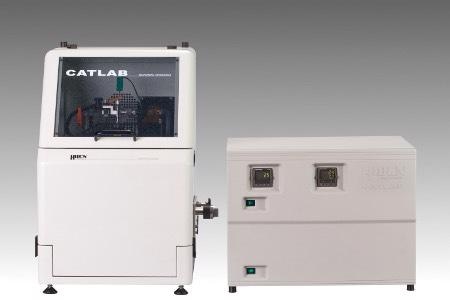As part of their regular review of vehicle standards, the American Environmental Protection Agency (EPA) could be set to change the current ones that were set in 2012, and potentially bring about big changes for auto engineering firms. The guidelines in question are the greenhouse gas emission standards for light-duty vehicles, affecting models due for production in 2022-2025.
The EPA cites changing economic circumstances as the reason behind these changes, which have divided opinion among manufacturers. They are worried about the commercial impact of repealing the strict emission standards, at the same time current generation gas analyzers are improving CO2 emissions and fuel-efficiency of vehicles, bringing them in line with the still-in-place 2012 standards.
In keeping with the environmental rhetoric of the day, the greenhouse gas emissions of the global automotive industry have steadily been decreasing over the past few years. This ties in with the wishes of a growing number of consumers that their new car have reduced emissions. This performance is measured by gas analyzers, showing their continued importance to the automotive industry as American manufacturers adapt to the new rule changes at home in contrast to the rules and demands of the foreign market.
Although the principle application for gas analyzers in the automotive industry is monitoring the chemical makeup of a vehicle’s emissions, there are an increasing variety of ways that mass spectrometers may be used.

Gas Analyzers for Catalyst Characterization
According to a study performed by the EPA, the transportation sector is responsible for approximately 27% of the US’s total greenhouse gas emissions, with light vehicles being responsible for roughly 60% of that. This is a significant amount of emissions and has prompted widespread research into making these essential vehicles run more cleanly. One avenue is by introducing catalysts that remove the more harmful elements of exhaust gases, which exist in the form of catalytic converters. These devices, made mandatory on vehicles produced in 1975 onwards, are fitted to the exhaust outlets and oxidize the pollutant gases, converting carbon monoxide (CO) to carbon dioxide (CO2) for example.
There have been big changes in vehicle requirements, capabilities, and specifications since 1975, and with these changes to the vehicle come further demands in improving catalytic converters. Microreactor gas analyzers can measure kinetic and thermodynamic performance of catalysts up to 1000 °C, as well as determining how new catalytic materials agglomerate. This agglomeration may result in decreased performance after lengthy periods of service due to soot build-up and subsequent surface area degradation.
The Hiden Analytical CATLAB-PCS combines multiple gas/vapor feeds, a microreactor and mass spectrometer into a single instrument and is the perfect platform for advanced catalysis research, allowing detailed catalysis reaction analysis combined with TPD/TPR studies.
The CATLAB-PCS system seamlessly integrates hardware and software with fast-response times and integrated air-cooling for accurate catalyst characterization.
Gas Analyzers for Advanced Fuel Cell Research
The global demand for gasoline is still high and is still the number one fuel used for automobiles, with the European market still sharing this consumption with diesel fuel. However, this could be set to change as electric vehicles start to improve in power and battery range and allay customers fears about the performance of alternative fuel vehicles. This increasing market awareness and softening attitudes towards electric vehicles has pushed research into cheaper and more efficient cars which eschew fossil fuels in favor of battery, motor, and/or fuel cell setups.
There is specialist equipment for gas analysis in fuel cell research which monitor the attributes of evolved gases and vapors in a range of conditions. For example, Hydrogen (H2) gas has emerged as a prospective candidate for use in automotive fuel cells, but before it can be used in a vehicle it must meet strict purity standards – prolonged exposure to contaminated hydrogen can poison the electrodes, rendering the full cell unrepairable.
Hiden Analytical developed the QGA compact bench-top system with fuel cell research in mind, and it is capable of high-purity gas analysis, with an internal gas and vapor mass spectral library along with an intelligent scan feature.
Gas Analyzers from Hiden Analytical
With 35 years of expertise in the development and manufacture of mass spectrometry equipment, Hiden Analytical is proud to continue its work on gas analyzers for real-time gas / vapor analysis and characterization of catalysts.
If you would like any more information on their gas analyzers which are suitable for use in the automotive industry, please do not hesitate to send them a message.

This information has been sourced, reviewed and adapted from materials provided by Hiden Analytical.
For more information on this source, please visit Hiden Analytical.